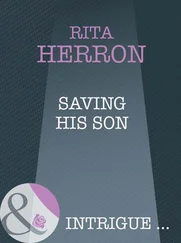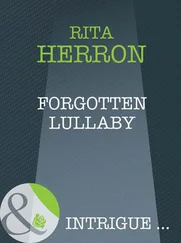He jogged down the front-porch steps two at a time, heading toward the lean-to where he’d parked the Jeep. Thankfully, his brother followed him to the porch. The witness was hiding in the back room, waiting to escape out the side door, then slip through the woods to the SUV.
Rocks and gravel sprayed beneath his boots as he walked, the sting of his brother’s disapproval burning his back. He shrugged it off, tossed his duffel bag into the back seat along with his computer and saw the witness crawl into the passenger seat. He waited until Cain turned before he went to retrieve the cash he kept stashed in the shed for emergencies.
Shaded by the thick forest of trees between his property and the road, he stepped toward the knotty pines. But a sudden explosion rent the air, the impact throwing him against a tree. Glass shards and flying metal assaulted him. He banged his head and tasted dirt, then jerked around on his knees in shock. His Jeep had exploded. A fireball rolled off it toward the sky. Ignoring the blinding pain that seared him, he lurched forward to rescue the witness, but another explosion rocked the ground and sent him hurling backward again into the woods.
Fire breathed against his skin, catching his clothes and singeing his arms and legs. A jagged rock pierced his skull.
The world went momentarily dark, the crackle of fire eating into the night. Eric pulled himself from the haze and tried to yell for help, but his vocal cords shut down. The smoke and fire robbed him of air. He coughed, inhaling the acrid odor of his own burning flesh. Pain, intense and raw, seared him. Flames clawed at his face, and pieces of hot metal stabbed his thigh. Then dizziness swept over him.
He released a silent scream into the night, welcoming death and telling his brother goodbye.
Three Months Later
“Did you find my birth parents?” Melissa Fagan asked.
Larry Dormer, a local Atlanta private investigator she’d hired, hesitated before answering. “I hit a lot of dead ends.”
He was stalling. Melissa steadied her voice to hide the disappointment. She wanted a name, just a name. At least for starters. “So, why did you call me in, Mr. Dormer?”
“You told me to let you know if I found anything. I have a lead.” Anxiety emanated from him in the uneven breaths that rasped through the air, along with the scent of his perspiration. He’d cracked his knuckles more than once, as well, reaching for cigarettes, then fighting the urge, a definite sign of nerves.
Instead, he drummed a pencil on his desk. How bad could it be? Had he located her parents and been told they didn’t want to be found? Were they shady people?
“You know most records are sealed—”
“Just tell me,” she said, growing impatient. She could feel his pity, hear the disapproval in his voice, sense he was holding back. He didn’t think she should search for people who might not want to be found. She should respect their privacy. She’d heard it all before. But she had to know the truth. “Look, I understand how difficult it is to hack into confidential files. Believe me, I’ve tried several sources. But I want to know everything you learned.”
“You’re sure? You registered in the national database for adopted children, so if your parents were looking for you, they’d be able to contact you.”
“Maybe they’re not certain I’d welcome them.”
He still hesitated. “All right. But you may not like what you discover.”
“I’m well aware of that.” All those years of foster care, she’d prayed she’d be adopted. Or that her mother or father would suddenly appear and rescue her from a life of being shuffled from one place to another. That hadn’t happened.
Now at twenty-six, she had no such illusions that her life would be so idyllic.
Her mother had left her on the doorstep of a church with no note, nothing except a tiny handmade crocheted bonnet with a pink ribbon. She had no idea why she’d been deserted. If she did, maybe she could overcome this dreadful sense of abandonment.
Besides, it would be nice to feel connected to someone else in the world. Not to feel so alone. To at least know the truth about the woman who’d given birth to her.
He still hesitated, studying her over square glasses, giving her time to contemplate her options.
What if her mother or father had searched for her but had encountered the same brick walls she had? Or what if her parents had given her away because they couldn’t handle parenting an imperfect child?
She massaged her temple, fighting an agitation-induced headache. The one that indicated the onslaught of a seizure. Her medication helped immensely, but occasionally she still experienced the episodes. They were mild, not epileptic in nature, and her symptoms mimicked a bad migraine—she became disoriented, slipped into a trancelike state for a few minutes—but they still embarrassed her and made her feel flawed. Besides, the attacks always left her physically exhausted and slightly depressed.
Other questions assailed her. What if her mother had never told her father about her existence? What if one of her parents could accept her and be proud that she’d become an independent young woman? A physical therapist, when so many people hadn’t believed she’d succeed.
What if your parents are happily married to other people and have families of their own? What if they’re ashamed of you, the bastard child?
What if you weren’t born out of a night of passion?
Are you prepared for an ugly truth like that?
How could she go on not knowing, though? She’d lived in darkness all her life, her past an empty vacuum—at least this was one door she could open, look through, then close it if need be.
She braced herself for the worst. “Tell me what you discovered.”
He sighed and reached for a cigarette, this time relenting and lighting up. The stench of smoke filled the air, his shaky rasp of contentment following. “Your mother’s name was Candace Latone.”
Candace? She savored the name for a moment. “Was Latone her maiden name or married name?”
“She wasn’t married.”
“What else can you tell me?”
“She was young. Gave birth to you in Savannah, Georgia.” He hesitated, his reluctancy to answer her palpable.
“What?” Anger tightened her throat. “I’m paying you for the truth, not to sugarcoat it.”
“All right.” He wheezed, his cheap suit coat rattling as he swiped at the perspiration on his face. “She spent some time in a hospital down there.”
“You mean she worked at one? Was she a nurse, an aide, a doctor? What?”
“She was a patient, Miss Fagan. She attended college in Savannah and got involved in some kind of research experiment at the hospital where she volunteered.”
“What kind of experiment?”
“I haven’t been able to find that out. Records are sealed. No one is talking.”
“And my father?”
“Nothing so far.”
Her mind veered off on a tangent—could the research experiment have caused her seizure disorder? The doctors hadn’t been able to explain the exact cause, but suggested it was genetic. And though not life threatening, the disorder deterred people from adopting her. Worse, she was afraid she might pass it on to a child. Maybe if she discovered the cause, the doctors could prevent her offspring from inheriting the condition.
“If I were you, I’d forget the search.” He stood, inhaling smoke and shuffling papers, his demeanor indicating an end to their meeting.
“Can you keep looking?” Melissa asked.
“I told you everything, Miss Fagan. Now, I’d let sleeping dogs lie.”
Melissa shivered and gripped the chair edge. She didn’t believe him. He was hiding something.
Читать дальше












